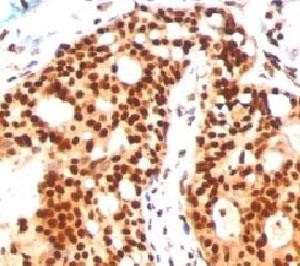Cookie-Einstellungen
Diese Website benutzt Cookies, die für den technischen Betrieb der Website erforderlich sind und stets gesetzt werden. Andere Cookies, die den Komfort bei Benutzung dieser Website erhöhen, der Direktwerbung dienen oder die Interaktion mit anderen Websites und sozialen Netzwerken vereinfachen sollen, werden nur mit Ihrer Zustimmung gesetzt.
Konfiguration
Technisch erforderlich
Diese Cookies sind für die Grundfunktionen des Shops notwendig.
"Alle Cookies ablehnen" Cookie
"Alle Cookies annehmen" Cookie
Ausgewählter Shop
CSRF-Token
Cookie-Einstellungen
FACT-Finder Tracking
Individuelle Preise
Kundenspezifisches Caching
Session
Währungswechsel
Komfortfunktionen
Diese Cookies werden genutzt um das Einkaufserlebnis noch ansprechender zu gestalten, beispielsweise für die Wiedererkennung des Besuchers.
Facebook-Seite in der rechten Blog - Sidebar anzeigen
Merkzettel
Statistik & Tracking
Endgeräteerkennung
Kauf- und Surfverhalten mit Google Tag Manager
Partnerprogramm

| Artikelnummer | Größe | Datenblatt | Manual | SDB | Lieferzeit | Menge | Preis |
|---|---|---|---|---|---|---|---|
| NSJ-V2257SAF-100UG | 100 µg | - | - |
3 - 10 Werktage* |
752,00 €
|
Bei Fragen nutzen Sie gerne unser Kontaktformular.
Bestellen Sie auch per E-Mail: info@biomol.com
Größere Menge gewünscht? Bulk-Anfrage
Bestellen Sie auch per E-Mail: info@biomol.com
Größere Menge gewünscht? Bulk-Anfrage
1 mg/ml in sterile PBS, BSA free, sodium azide free. This antibody reacts with both SUMO2 and... mehr
Produktinformationen "Anti-SUMO2/3, clone SM23/496"
1 mg/ml in sterile PBS, BSA free, sodium azide free. This antibody reacts with both SUMO2 and SUMO3. The small ubiquitin-related modifier (SUMO) proteins, which include SUMO1, 2 and 3, belong to the ubiquitin-like protein family. Like ubiquitin, the SUMO proteins are synthesized as precursors that undergo processing before conjugation to target proteins. Also, both utilize the E1, E2 and E3 cascade enzymes for conjugation. However, SUMO and ubiquitin differ with respect to targeting. Ubiquitination predominantly targets proteins for degradation, whereas sumoylation targets for a variety of cellular processing, including nuclear transport, transcriptional regulation, apoptosis and protein stability. The unconjugated SUMO1/2/3 proteins localize to the nuclear membrane, nuclear bodies and cytoplasm, respectively. SUMO1 utilizes Ubc9 for conjugation to several targets, which include MDM2, p53, PML and RanGap1. SUMO2 and 3 contribute to a greater percentage of protein modification than does SUMO1 and they can form polymeric chains. In addition, SUMO3 regulates beta-Amyloid generation and may be critical in the onset or progression of AlzheimerÆs disease. Protein function: Ubiquitin-like protein that can be covalently attached to proteins as a monomer or as a lysine-linked polymer. Covalent attachment via an isopeptide bond to its substrates requires prior activation by the E1 complex SAE1-SAE2 and linkage to the E2 enzyme UBE2I, and can be promoted by an E3 ligase such as PIAS1-4, RANBP2 or CBX4. This post-translational modification on lysine residues of proteins plays a crucial role in a number of cellular processes such as nuclear transport, DNA replication and repair, mitosis and signal transduction. Polymeric SUMO2 chains are also susceptible to polyubiquitination which functions as a signal for proteasomal degradation of modified proteins (PubMed:18408734, PubMed:18538659, PubMed:21965678, PubMed:9556629). Plays a role in the regulation of sumoylation status of SETX (PubMed:24105744). [The UniProt Consortium]
| Schlagworte: | Anti-Smt3B, Anti-HSMT3, Anti-SUMO-3, Anti-SUMO-2, Anti-Sentrin-2, Anti-SMT3 homolog 2, Anti-Ubiquitin-like protein SMT3B, Anti-Small ubiquitin-related modifier 2, SUMO2/3 Antibody |
| Hersteller: | NSJ Bioreagents |
| Hersteller-Nr: | V2257SAF |
Eigenschaften
| Anwendung: | WB, FC, IHC, IF |
| Antikörper-Typ: | Monoclonal |
| Klon: | SM23/496 |
| Konjugat: | No |
| Wirt: | Mouse |
| Spezies-Reaktivität: | human (Erwartet: broad) |
| Immunogen: | Recombinant human SUMO2 protein was used as the immunogen for this SUMO2/3 antibody. |
| Format: | Purified |
Datenbank Information
| KEGG ID : | K12160 | Passende Produkte |
| UniProt ID : | P61956 | Passende Produkte |
| Gene ID | GeneID 6613 | Passende Produkte |
Handhabung & Sicherheit
| Lagerung: | +4°C |
| Versand: | +4°C (International: +4°C) |
Achtung
Nur für Forschungszwecke und Laboruntersuchungen: Nicht für die Anwendung im oder am Menschen!
Nur für Forschungszwecke und Laboruntersuchungen: Nicht für die Anwendung im oder am Menschen!
Hier folgen Informationen zur Produktreferenz.
mehr
Hier kriegen Sie ein Zertifikat
Loggen Sie sich ein oder registrieren Sie sich, um Analysenzertifikate anzufordern.
Bewertungen lesen, schreiben und diskutieren... mehr
Kundenbewertungen für "Anti-SUMO2/3, clone SM23/496"
Bewertung schreiben
Loggen Sie sich ein oder registrieren Sie sich, um eine Produktbewertung abzugeben.
Zuletzt angesehen






